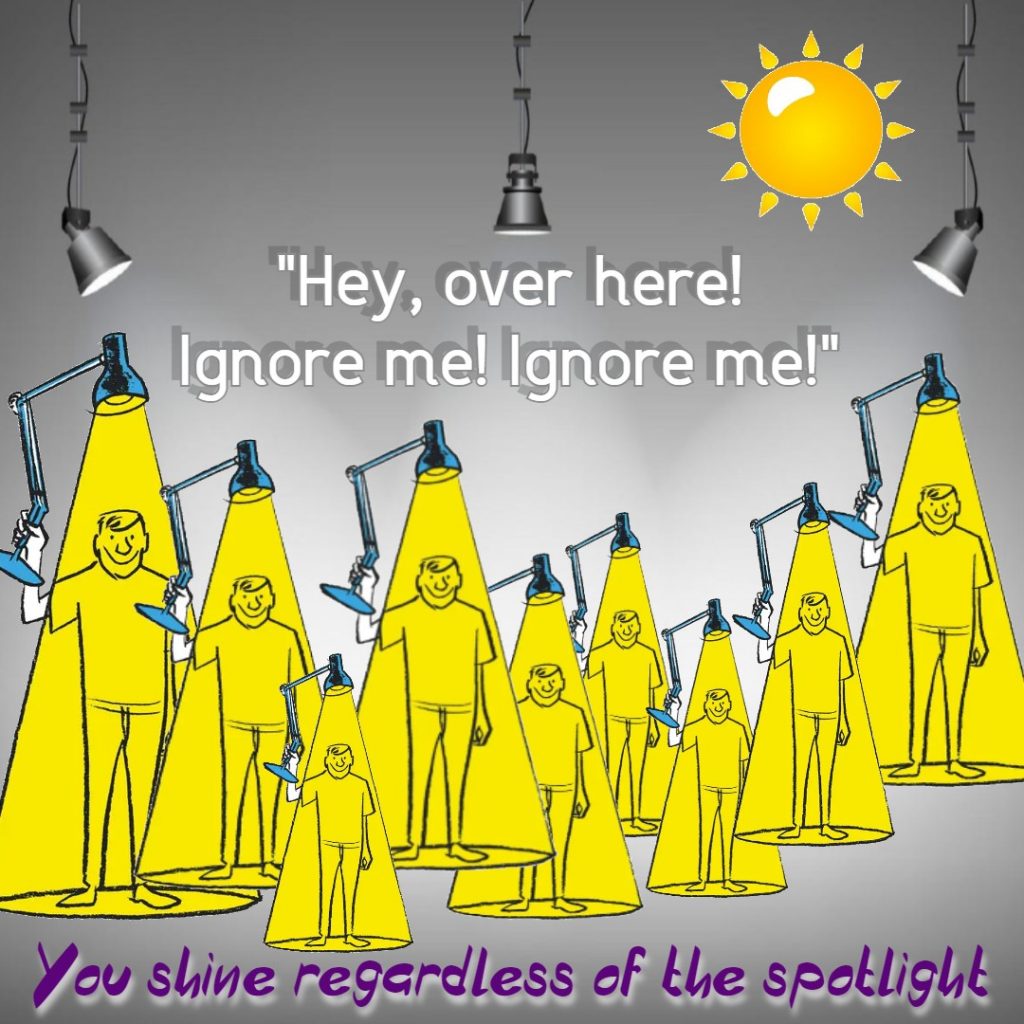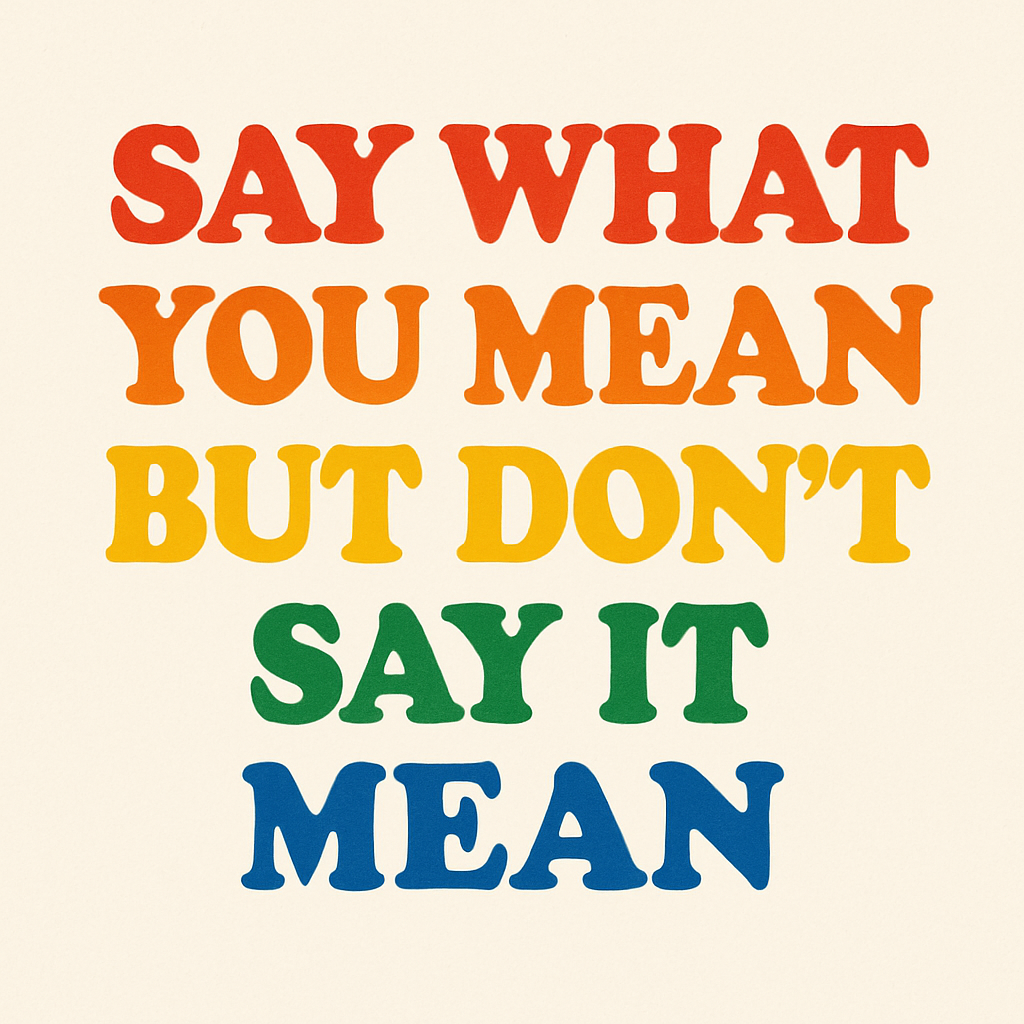
Self-absorption, self-obsession, the need for validation from others, toxic vanity, being in the spotlight … the list goes on. Please do not judge yourself if you possess any of the mentioned characteristics – however, I would encourage you to investigate if your self-worth and esteem are contingent on how others’ perceive you. Ideally, our self-worth comes from within. We do not need to seek it outside of ourselves. When you find yourself doing so, pause, and offer yourself what you need.

Related Post
The Four Options for any Problem (Linehan, 1993)The Four Options for any Problem (Linehan, 1993)
Marsha Linehan, the creator of Dialectical Behavior Therapy, gives four options for any problem that you face: Solve the problem, change your perception of the problem, radically accept the situation, or stay miserable.
When we are overwhelmed by a life challenge, one way we might naturally respond is by defending our position. Perhaps, we’ll resort to an effective yet temporary coping strategy like denial, projection, victimhood, or blaming. We attempt to cope in ways that lessen the stress – the internal discomfort and unpleasantness. Coping strategies that offer temporary relief generally make the situation worse in the long run, especially when fostering relationships at work and in our personal lives. For example, crawling back into bed when you need to work or have commitments with friends. Maybe you over-eat, use chemicals or resent the world, which alleviates the immediate emotional pain, then feel guilty or ashamed afterward.
Sometimes, in an effort to take action, people attempt to solve problems cognitively – problems that cannot be solved, becoming more and more frustrated when their efforts don’t work. Others become paralyzed or dissociate, unable to decide what to do. Intense emotions can be overwhelming, fatiguing, and compromise our ability to think with an open heart and a clear mind. Searching endlessly for the right solution adds to anxiety and distress.
Marsha Linehan, the creator of Dialectical Behavior Therapy, gives four options for any problem that you face: Solve the problem, change your perception of the problem, radically accept the situation, or stay miserable.
Choice 1: Solve the Problem.
There are many problem-solving strategies, but most use the same steps. First, define the problem. Be as specific as possible. Use numbers whenever possible. For example, “I’ve been late for work four days this week.”
Next, analyze the problem. Is it in your power to solve the problem? If not, then consider one of the other three options. If yes, then continue to analyze the problem.
What are the reasons you’ve been late? Is the reason always the same? Does it depend on your mood or what time you went to bed? Does it depend on what tasks you have to do at work? Who you work with? Where you went the night before? Consider the who, what, when, and where of the behavior you want to change.
The third step is to consider possible solutions. Think of various solutions that could solve the problem. Evaluate the solutions carefully to determine which might work best for you. What are the pros and cons of different actions? What could go wrong? What can you do to make the solution more likely to work?
For example, if you decide to give yourself a weekly budget and to freeze your credit cards in a block of ice, what would you do in case of an emergency? Would giving yourself a certain amount of spending money for the day work better than an amount for the week?
A key variable to remember is how difficult it is to make changes in behavior. A strong commitment to change is important. Be specific in stating the change you want to make. Be willing to make small changes at first. Implement the solution: Take action. Trouble-shoot as you go along, tweaking it to resolve any issues you didn’t anticipate.
Choice 2: Change Your Perception.
Changing your perception of the problem can be a challenge. An example of changing your perception of a problem might be to see a difficult boss as an opportunity to work on coping with someone who is disorganized and demanding. If you feel irritated because your house is cluttered with toys, maybe change your perception to one that the clutter is a signal to be grateful for young children in the home. Changing your perception could also mean changing your view of emotion. Instead of trying never to feel anger, look at your frustration as a source of information, perhaps a signal that you need to speak up for yourself.
Choice 3: Radically Accept the Situation.
Radical Acceptance means wholeheartedly accepting what is real. Radical acceptance is like saying, “It is what it is,” and giving up your resistance to the situation. Radical acceptance could be about issues we can’t control or concerns that we decide not to change, at least for the time being. It doesn’t mean you agree with what has happened or that you think it is reasonable.
Choice 4: Stay Miserable.
Of course, staying miserable is not a choice anyone wants to make, and no one would want to consider it as an option. But if you can’t solve the problem, can’t change your perception, and you aren’t ready to radically accept the situation, then staying miserable is the only option left.
Staying miserable may be all you can do in certain situations. Sometimes staying miserable may be what you have to do until you are ready to do something else. There are ways to cope that can help until another option can be used.
In future posts, we’ll look at specific skills that enhance your ability to problem-solve, change your perception, or radically accept situations. We’ll also consider ways to get through the times when you can’t make any of those choices.
Fear and Love, with Tara BrachFear and Love, with Tara Brach
I strongly encourage viewers, readers, and interested friends to visit Tara’s website Tara Brach – Meditation, Psychologist, Author, Teacher. So much of what I consider to be true and helpful is the wisdom I have learned from Tara Brach, an American psychologist, author, and proponent of Buddhist meditation – but more than that, she is authentic, compassionate and honest.
Honesty and CompassionHonesty and Compassion

The phrase “Say what you mean, but don’t say it mean” is all about the balance between honesty and kindness in communication.
Here’s what it means:
- “Say what you mean”:
Be clear and truthful. Express your real thoughts and feelings. Don’t beat around the bush or pretend to agree when you don’t. - “But don’t say it mean”:
Speak with kindness and respect. Even when you’re being honest or giving criticism, there’s no need to be rude, hurtful, or aggressive.
Why it matters:
This phrase promotes healthy communication. It’s a reminder that:
- You can be honest without being harsh.
- Tone and delivery matter just as much as the words.
- Empathy and respect should guide your conversations—even when it’s hard.
